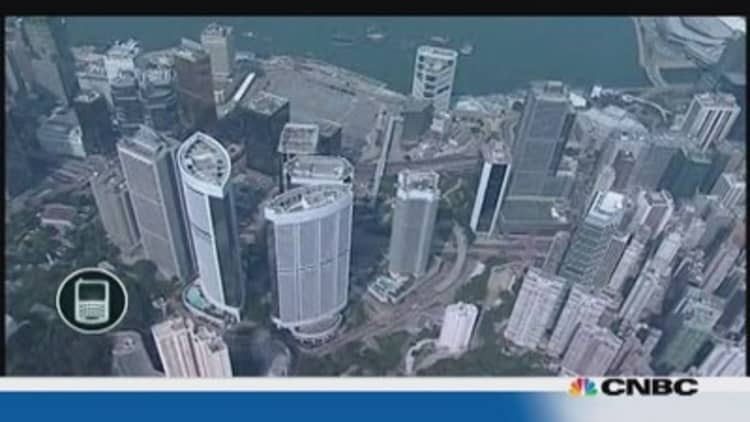Singapore's famously efficient government faces a challenge that has stymied many a country before: safely guiding its toppish property market to a soft landing as interest rates rise.
Property prices in the city-state have surged over 60 percent since 2009, propelled by rock-bottom global interest rates and quantitative easing in developed economies, even as Singapore's government has enacted a series of cooling measures to prevent a bubble from forming.
(Read more: A risky year for the global property market?)
But the prospect of rising interest rates as the U.S. Federal Reserve begins tapering its asset purchases has spurred fears that Singapore's property market could be headed for a crash as higher mortgage payments could spur forced selling and defaults.
This week, Singapore indicated the specter of forced selling remains a serious concern, with the central bank, the Monetary Authority of Singapore (MAS), relaxing one of its cooling measures, the Total Debt Servicing Ratio, or TDSR. The measure aimed to ensure that buyers' monthly payments do not exceed 60 percent of their income, so they wouldn't be caught out by a spike in interest rates. Most mortgages in Singapore have adjustable, rather than fixed, rates.
(Read more: Singapore home price fall sets bearish tone for 2014)
The government now allows an exception for borrowers who took out their loan on their home before the TDSR was introduced last year and who need to refinance as their payments rise.
"These exemptions will reduce the incidence of TDSR-imposed fire sales and lower the risk of a property market collapse," David Lum, a property analyst at Daiwa, said in a note, adding the exemption could prove crucial as it will insulate owner-occupied homes from the pressure.
"This should help to reduce possible systemic risk from the TDSR, or any blind application of policy thresholds," he said, adding that the latest steps likely indicate the TDSR has been the most-effective cooling measure.
(Read more: Are Singapore home prices set for a bruising?)
The MAS estimates around 5-10 percent of Singapore's borrowers have a monthly debt-servicing burden that exceeds 60 percent of their income, with that percentage potentially rising to 10-15 percent of borrowers if mortgage rates rise by 300 bps.
Keeping those households from dumping their properties into an already slowing property market is likely key to keeping an even economic keel in the city-state.

The consequences of getting it wrong on efforts to guide the property market to a soft-landing can be both long-lasting and high. While much of the U.S. housing market has shown significant recovery only five years after the Global Financial Crisis, Singapore's property market didn't fare as well in the wake of the crash during the Asian Financial Crisis in the late 1990s.
(Read more: Economist defends Singapore bubble claims)
It wasn't until 2009 that the city-state's private residential property prices returned to their 1996 peak level, according to the government's property price index data.
Others also believe the latest steps, which aren't likely to affect new sales, will help prevent a meltdown.
Without the changes, "stressed" households with TDSR ratios above 60 percent would be "held to ransom" by lenders as payments rose without the option to refinance, Citigroup noted.
(Read more: When will Singapore roll back property curbs?)
"This ensures a softer landing for such 'stressed households' as well as 'fringe households' (40-60 percent TDSR, which form one in five borrowers), whose debt servicing burden could deteriorate upon any adverse changes in their household cashflows," Citigroup said in a note.
—By CNBC.Com's Leslie Shaffer; Follow her on Twitter @LeslieShaffer1

